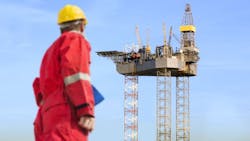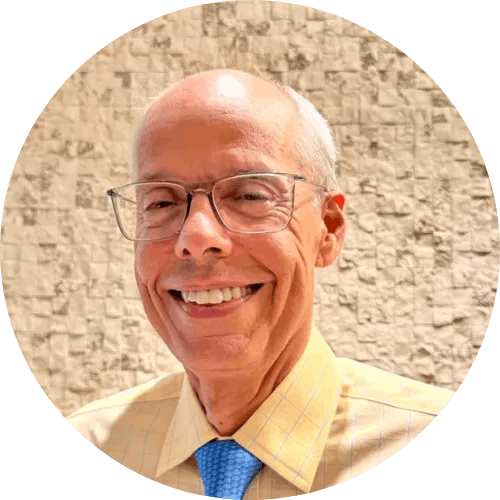OTC 2025: Offshore industry trailblazer highlights key to success is in sharing lessons learned
By Ariana Hurtado, Editor-in-Chief
This year's recipient of the 2025 OTC Distinguished Achievement Award for Individuals is Jose Formigli, who played a crucial role in deepwater field development during his 30 years with Petrobras.
Stated best by OTC:
"Jose Formigli is being honored for his distinguished career as a petroleum and subsea engineer, as well as his significant contributions to the offshore industry. With more than 40 years of experience, he is regarded as one of Brazil’s leading deepwater engineers, known for fostering collaboration with academia, R&D centers, and the technical community.
Formigli’s work has been instrumental in implementing dozens of offshore developments, including key technical contributions to Petrobras’ Marlim, Roncador, and Santos Basin Pre-Salt Cluster projects, all of which have received OTC’s Distinguished Achievement awards in the Company category in previous years. In addition to authoring several influential papers, Formigli has actively participated in numerous SPE seminars and OTC conferences over the years."
Formigli's journey into the oil and gas industry started when he joined Petrobras in 1983 as an attendee in a specialization course on petroleum engineering. The following year he began working offshore as a "company man" on rigs that were dedicated to completion/evaluation and workover operations.
"I stayed some time in northeast of Brazil and then started working in the Campos Basin," Formigli told Offshore. "That was a fantastic period considering my age (25 years old) with a high responsibility working in fixed platform rigs and in floater rigs as well."
He added, "We were already dealing with by then high technological subsea equipment, most of them still using diving assistance to perform some tasks. The discoveries of deepwater fields like Marlim and Albacora, in water depths around 1,000 meters, led to the obligation to design equipment that was reliably installed and operated diverless, with the very first generation of ROVs."
One of his proudest moments early in his career was presenting the team's technological developments, which were "on the edge of technology by that time" at an OTC session about the Campos Basin in the late '80s.
A history of innovations
Petrobras has been awarded several OTC Distinguished Achievement Awards for Companies, Organizations, and Institutions over the years. As stated by OTC, in its list of 1971-2024 winners, Petrobras was recognized:
- In 1992 for outstanding technical achievements related to the development of deepwater production systems, including guidelineless lay-away wet christmas trees with flexible pipe in water depths exceeding 700 m, installation of the world's deepest monobuoy at a depth of 405 m, floating production systems moored in water depth exceeding 600 m; and for establishing, with participating scientific and technical communities, development programs directed toward enhancing deepwater systems.
- In 2001 for outstanding advancements to deepwater technology and economics in the development of the Roncador Field. A timeline of 27 months from discovery to first oil production, in a water depth of more than 1800 m, was made possible by the use of a dynamically positioned early production system, and a dedicated production system using steel catenary exporting risers, taut-leg polyester mooring, and subsea production hardware.
- In 2015 for the successful implementation of ultradeepwater solutions and setting new water depth records for the company's presalt development. Petrobras increased their efforts in technology development to exploit this hard-to-access resource, in waters up to 2,200 m (7,200 ft). By the end of 2014, Petrobras was producing more than 700,000 bbl/d of oil in the presalt layer of the Campos and Santos basins. The oil and gas production in this challenging environment demanded the development of different riser systems, which were successfully applied and are now available for the industry. Additionally, Petrobras achieved a significant reduction in the drilling and completion time for wells.
- In 2020 for executing the Buzios project complex asset development challenge in integrating novel and unique technologies to deliver the world’s largest ultradeepwater hub.
- In 2024 for the deployment of a wide set of new technologies for the successful revitalization of the Marlim Field and the entire deepwater Campos Basin, with significant reduction in greenhouse gas emissions.
"By the beginning of the '90s, Petrobras was implementing the floating production systems in the deepwater fields, with high-end technological breakthroughs under the coordination of PROCAP [Deep Water Capability Program]," he continued. "A sequence of deeper discoveries brought extra challenges, and this was something extremely attractive for all technicians and management, not only in Petrobras but also in the service and equipment suppliers, besides the Brazilian academia."
In the early 2000s, Petrobras and partners were successful with the discoveries of presalt in the Campos Basin, but that also brought about some challenges for Formigli's team.
"Besides the water depth of more than 2,000 m, we had to develop technologies and procedures to drill through more than 2,000 m of salt, [which was] a very challenging environment in respect to geomechanics," he said.
The team also needed to address the CO2 content for future production developments.
"Petrobras and partners were very successful implementing technologies to guarantee quick and safe first oil of several production systems, leading to a ramp up from 2010 achieving more than 1 MM bopd in six years," he said. "Procedures for optimizing the operations, together with some innovative technologies, improved dramatically the time for drilling, completing and connecting the wells to floaters, while also improving the layout in order to guarantee the maximum flow rate per well, with a fantastic impact in the economics of the production systems. All naturally produced CO2 was decided to be reinjected, and this brought not only a great benefit in term of emissions reduction but also an improvement in the recovery factor of the reservoirs."
Formigli eventually went into management at Petrobras but says he never lost his technical interest in well construction and subsea engineering. He retired from the company in 2015. Now he fills his time working as a consultant via his company Forsea Engenharia, which assists operators, suppliers and investment funds using the field experience he gained during his decadeslong career.
Collaboration and knowledge sharing
Formigli explained that the innnovative technologies that the Marlim, Roncador and Santos presalt projects required were brought to the entire industry, not just Brazil, via the exchange of information and experience between operators and the OFSE network.
"Brazil became a reference for the offshore industry for the whole world, and every professional working in the Brazilian offshore activities is extremely proud of this status," he boasted.
He also highlighted the importance of collaboration and knowledge sharing.
"Petrobras was very clever establishing a strong link with the Brazilian and foreign network of R&D centers, including those from the partners, academia and service/equipment suppliers, led by the Cenpes (Petrobras R&D Center) ... setting and achieving milestones of production capability at 1,000, 2,000 and 3,000 meters water depth," he said.
The next generation of engineers
As a mentor to the next generation, Formigli noted what he considers to be key strategies to nurture new talent and promote knowledge sharing within teams.
"The first thing is to have a robust process to attract and select well-prepared and motivated professionals to guarantee the continuity of the attendance of talents to our industry," he said. "The next important—and sometimes underestimated practice—is to listen with attention to all new ideas brought by the new talent and explain always why eventually they are not implemented.
"Recognition of the good performance and immediate feedback on the improving performance opportunities are critical to maintain an ambiance of mutual trust. Interchange of experiences not only via digital tools but also via conferences like OTC are extremely important to spread the knowledge, reduce repetition of the same mistakes, and improve safety and economical parameters of the industry."
His advice to young engineers entering the offshore oil and gas industry is to stay updated via continuous studies and share the knowledge. He also suggests that emerging professionals remain open to suggestions from more experienced team members and leaders. Although he says it's OK to challenge them when they are not satisfied with an explanation.
"Joining the offshore industry is an excellent way to have a fantastic professional journey ahead," he concluded.
Petrobras will be exhibiting at booth 3542 at the Offshore Technology Conference (OTC) May 5-9 in Houston, Texas. View the OTC 2025 Technical Program for a list of the sessions Petrobras is participating in and/or moderating.
About the Author
Ariana Hurtado
Editor-in-Chief
With more than a decade of copy editing, project management and journalism experience, Ariana Hurtado is a seasoned managing editor born and raised in the energy capital of the world—Houston, Texas. She currently serves as editor-in-chief of Offshore, overseeing the editorial team, its content and the brand's growth from a digital perspective.
Utilizing her editorial expertise, she manages digital media for the Offshore team. She also helps create and oversee new special industry reports and revolutionizes existing supplements, while also contributing content to Offshore's magazine, newsletters and website as a copy editor and writer.
Prior to her current role, she served as Offshore's editor and director of special reports from April 2022 to December 2024. Before joining Offshore, she served as senior managing editor of publications with Hart Energy. Prior to her nearly nine years with Hart, she worked on the copy desk as a news editor at the Houston Chronicle.
She graduated magna cum laude with a bachelor's degree in journalism from the University of Houston.


